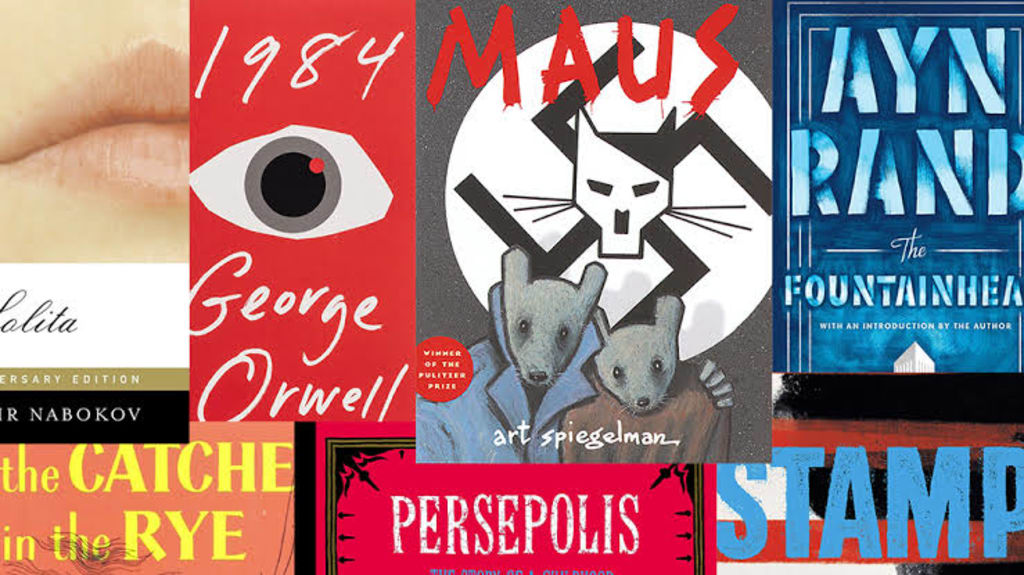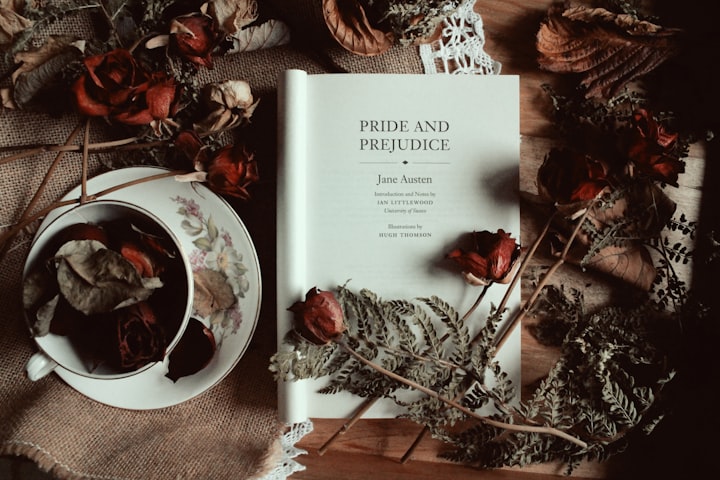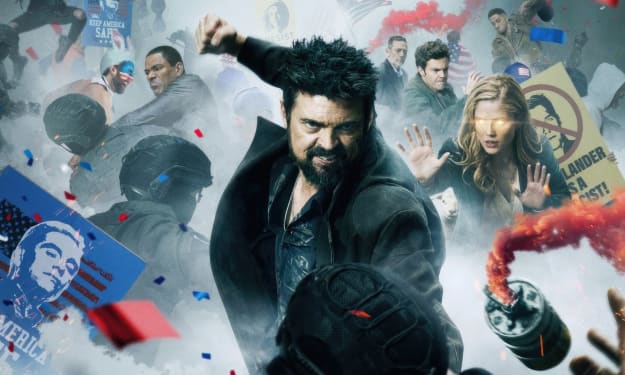5 Famous Novels That Were Banned or Censored
"Banned and Censored: Unveiling the Controversial History of Novels and the Battle for Literary Freedom"

Books have always been one of the most powerful mediums of communication, and as such, have been subject to censorship and banning throughout history. Unfortunately, this censorship often targets the most groundbreaking and thought-provoking literature. In this article, we will take a look at five famous novels that have been banned or censored in various countries around the world. These books have all faced controversies, ranging from political incorrectness to blasphemy, and were all deemed too dangerous for public consumption. We will delve into the reasons behind their bans, the impact of their censorship, and the debate surrounding the issue of book banning.
Introduction to the history of book banning and censorship
Book banning and censorship have been a part of human history since literature began. Governments, religious organizations, and individuals have banned books for a variety of reasons, including political ideology, morality, and societal norms. The practice of censorship limits our freedom of expression and restricts access to ideas and information.
Defining censorship and its role in literature
Censorship is the suppression or prohibition of any parts of books, films, news, or other media that are considered obscene, politically unacceptable, or a threat to security. This practice limits the freedom of speech and expression, preventing ideas and information from reaching the public. In literature, censorship often targets content that is deemed offensive or inappropriate for a particular audience.
The history of book banning and censorship in literature
The history of book banning and censorship is long and varied. In ancient China and Egypt, censors were responsible for removing any literature that opposed the ruling regime. In medieval Europe, the Catholic Church prohibited the printing and distribution of books that were deemed heretical or blasphemous. In the 20th century, totalitarian regimes like Nazi Germany and Communist Russia banned books that criticized their governments or promoted opposing ideologies.
Overview of the 5 famous banned or censored novels
The following novels were banned or censored at some point in history, often due to controversial themes or content.
Novel 1: "To Kill a Mockingbird" by Harper Lee (1960)
"To Kill a Mockingbird" is a Pulitzer Prize-winning novel that explores racism and prejudice in the American South. The book has been frequently challenged and banned due to its use of racial slurs and its depiction of rape, as well as its perceived subversion of traditional gender roles.
Novel 2: "The Catcher in the Rye" by J.D. Salinger (1951)
"The Catcher in the Rye" is a coming-of-age novel that follows protagonist Holden Caulfield as he navigates the complexities of adult life. The book has been banned and challenged numerous times due to its profanity, sexual content, and depictions of rebellion and alienation.
Novel 3: "1984" by George Orwell (1949)
"1984" is a dystopian novel that explores the dangers of totalitarianism and the power of propaganda. The book has been banned and censored in various countries, including the USSR, due to its perceived criticism of communism and authoritarianism.
Novel 4: "Beloved" by Toni Morrison (1987)
"Beloved" is a Pulitzer Prize-winning novel that explores the legacy of slavery in America through the story of an escaped slave and her daughter. The book has been challenged and banned due to its graphic depictions of violence and sexuality, as well as its use of magical realism.
Novel 5: "The Satanic Verses" by Salman Rushdie (1988)
"The Satanic Verses" is a novel that explores the relationship between religion, politics, and identity. The book has been banned and sparked worldwide controversy due to its perceived blasphemy against Islam and its depiction of the prophet Muhammad.
The reasons behind the banning or censorship of each novel
Each of these novels has been banned or censored for a variety of reasons, ranging from objections to their content to political and religious controversies.
Reasons behind the banning of "To Kill a Mockingbird"
"To Kill a Mockingbird" has been banned due to its use of racial slurs, its depiction of rape, and its perceived subversion of traditional gender roles.
Reasons behind the banning of "The Catcher in the Rye"
"The Catcher in the Rye" has been banned due to its profanity, sexual content, and portrayal of rebellion and alienation.
Reasons behind the banning of "1984"
"1984" has been banned due to its perceived criticism of communism and authoritarianism, as well as its depiction of sex and violence.
Reasons behind the banning of "Beloved"
"Beloved" has been banned due to its graphic depictions of violence and sexuality, as well as its use of magical realism.
Reasons behind the banning of "The Satanic Verses"
"The Satanic Verses" has been banned due to its perceived blasphemy against Islam and its depiction of the prophet Muhammad.
The impact of the ban or censorship on the novel's popularity and legacy
The banning or censorship of these novels has had a significant impact on their reception and legacy.
Effect of censorship on the book's sales and reception
Book censorship can often lead to increased sales and popularity, as it draws attention to the controversial content and sparks public debate. In some cases, however, censorship can limit a book's accessibility and reduce its readership.
How censorship impacted the author's career and legacy
The censorship of a book can also have a significant impact on an author's career and legacy. Banned books may lead to increased notoriety and recognition for the author, but they can also limit their opportunities for publication and public appearances.
The legacy of the banned or censored novels in contemporary literature
Banned and censored books have often become cultural touchstones and are celebrated for their contribution to the literary canon. They continue to inspire discussion and debate about freedom of expression and the role of literature in society.Novel 5 that led to its ban or censorship
The impact of banning or censoring these novels on literature and society
How banning or censoring these novels affected the literary world
What impact did banning or censoring these novels have on society?
The role of censorship in shaping cultural and societal norms
Conclusion: Reflections on the value of literary freedom and the dangers of censorship
The importance of protecting artistic expression and literary freedom
The dangers of censorship and limiting access to controversial works
Final thoughts on the complex relationship between freedom and censorship in literature and society
In conclusion, the banning and censorship of literature is a complex and controversial issue that has affected some of the greatest works of art in history. The books we have discussed in this article are just a small sample of the many novels that have been subjected to this kind of censorship. It is important to remember that literature has the power to challenge and change societal norms, and that freedom of expression is a fundamental human right that should never be taken for granted.
FAQ
What are some other famous books that have been banned or censored?
There are many other books that have faced censorship or been banned, including "To Kill a Mockingbird" by Harper Lee, "Brave New World" by Aldous Huxley, and "The Catcher in the Rye" by J.D. Salinger.
Is book banning and censorship still a problem today?
Yes, unfortunately, book banning and censorship is still a problem in many countries around the world. Even in the United States, where freedom of speech is a protected right, books are still banned or challenged in schools and libraries.
Why do people ban books?
Books are often banned for a variety of reasons, including political incorrectness, sexual content, blasphemy, and violence. Some people believe that certain books are harmful to society and should not be allowed to be read by the public.
What can we do to fight against book banning and censorship?
One of the most important things we can do is to support free speech and freedom of expression. This means speaking out against censorship and advocating for the right to read and write what we choose. We can also support organizations that fight against book banning and censorship, such as the American Library Association's Office for Intellectual Freedom.
About the Creator
Enjoyed the story? Support the Creator.
Subscribe for free to receive all their stories in your feed. You could also pledge your support or give them a one-off tip, letting them know you appreciate their work.





Comments
There are no comments for this story
Be the first to respond and start the conversation.